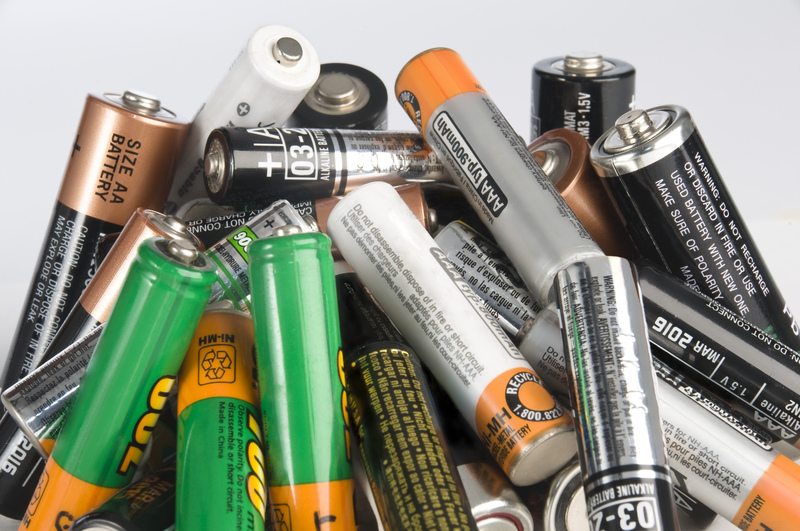Discover How to Recycle Pots and Pans in Your Area: The Ultimate Guide
Are you wondering what to do with those old pots and pans piling up in your kitchen cabinet? Perhaps they're stained, scratched, or simply replaced by a shinier set. Recycling cookware isn't just eco-friendly--it's essential for reducing landfill waste and conserving resources. Let's explore how to recycle pots and pans locally and responsibly, and uncover sustainable alternatives for disposing of your old kitchenware!
Why Recycle Pots and Pans?
Every year, millions of tons of metal waste--some from cookware--end up in landfills. By understanding how to recycle cookware, you save space in those landfills, reduce environmental pollution, and help reclaim precious metals that can be used again and again. Recycling pots and pans is not just about eco-conscious living--it's about creating a cleaner future for everyone.
Environmental Benefits of Recycling Cookware
- Reduced landfill waste: Metal pots and pans take decades, sometimes centuries, to break down in landfill conditions.
- Resource conservation: Recycled metals require much less energy to process than new ores.
- Lower carbon footprint: Recycling cookware reduces emissions from mining and manufacturing.
- Supports the circular economy by keeping valuable materials in use.

What Types of Pots and Pans Can Be Recycled?
Before heading to a recycling facility, it's important to identify recyclable pots and pans. Most cookware consists of metal, but other materials like plastic, glass, or nonstick coatings might limit recycling options.
Common Recyclable Materials in Cookware
- Stainless steel
- Aluminum
- Copper
- Cast iron
However, cookware with extensive nonstick coatings (like Teflon), plastic handles, or glass lids may require special attention for recycling. Always separate different materials when possible, and check your local recycler's guidelines.
How to Recycle Pots and Pans in Your Area
Ready to start recycling your unused or damaged pans and pots? Follow these actionable steps to recycle cookware responsibly in your community!
Step 1: Check Your Local Recycling Guidelines
Visit your county or city government website and look for the waste management or recycling section. Many areas maintain up-to-date information about which materials are accepted in curbside recycling bins or drop-off centers.
- Some locations accept metal kitchenware in the blue bin--others require special handling.
- Composite materials or pans with rubber grips/handles often aren't accepted in general recycling.
- If in doubt, contact your local recycling center directly for clarification.
Step 2: Locate a Scrap Metal Dealer
Scrap metal dealers are often the best destination for old pots and pans, especially if they are made entirely of metal. Here's how to find one:
- Search online for "scrap metal recycling near me" or "metal salvage yards."
- Call ahead to confirm they accept cookware and ask about any material-preparation requirements--some may require you to remove plastic or wooden handles first.
- Many salvage yards pay by weight, so recycling might even earn you a small sum!
Step 3: Drop-Off at Household Recycling Centers
Some municipal waste transfer stations or recycling drop-off points accept worn-out cookware, especially during metal recycling events or bulky waste days. Always check the facility's accepted materials list before your visit.
Step 4: Donate Usable Pots and Pans
Are your old pots and pans still functional? Many charities, thrift stores, and shelters gratefully accept donations of gently-used cookware.
- Contact organizations like Goodwill, Salvation Army, or local women's shelters.
- Donating keeps items in use, supporting both community needs and the environment.
Step 5: Participate in Community Swap or Reuse Events
Check for local tool libraries, community swaps, or zero-waste groups that host give-and-take events. These initiatives are perfect for finding a new home for your cookware, keeping it out of landfills entirely.
Creative Ways to Reuse or Upcycle Old Cookware
If traditional recycling options are limited, think creatively! Your pots and pans can have a second life through upcycling. Here are fun and eco-friendly ideas:
- Garden planters: Fill old pots and pans with soil and flowers to create unique container gardens.
- Birdbaths or bird feeders: Hang an unused pan from a tree or place it on a pedestal for your feathered friends.
- Industrial-style decor: Clean and mount vintage cookware for a rustic kitchen art installation.
- Toy drums: Give kids a chance to make music with creative, upcycled instruments.
- Storage containers for tools, craft supplies, or workshop odds and ends.
Dealing with Special Materials and Nonstick Coatings
Nonstick pans pose specific challenges in the recycling process. Teflon and other nonstick coatings can't be recycled with general metals, and burning them releases toxic fumes.
- Check with the manufacturer. Some cookware brands offer take-back programs or mail-in recycling services for their nonstick products.
- If the nonstick surface is severely damaged, it may be safest to place the pan in the trash if recycling is not available. However, check with your local waste authority for guidance first!
- Consider replacing future cookware with more easily recyclable materials, such as stainless steel or cast iron.
Find Pot and Pan Recycling Options Near You
Looking for a quick way to locate recycling resources? Try these easy online tools to search for recycling drop-offs, curbside services, or scrap yards accepting cookware:
- Earth911 Recycling Directory: Visit Earth911 and enter your zip code plus "metal cookware".
- Recycling Locator from Recycle Nation: Go to Recycle Nation for more options by item and location.
- Check your municipal waste management website for local recycling event calendars or updates on accepted materials.
Pro Tip: Whenever using a recycling center, make sure to clean your cookware thoroughly. Food residue can prevent recycling or cause contamination issues in the process.
Frequently Asked Questions About Recycling Pots and Pans
Can I Put Old Pots and Pans in the Curbside Recycling?
Most curbside programs do NOT accept pots and pans because of their size, weight, and material composition. Always check local guidelines. In most cases, drop-off centers or scrap yards are the best option.
What If My Pan Has a Plastic or Wood Handle?
Remove any non-metal parts if possible, such as plastic or wooden handles. Recyclers only want the uncontaminated metal portion. Use a screwdriver or pliers to separate parts when needed.
Can Damaged or Rusty Cookware Still Be Recycled?
Absolutely! The condition of the cookware doesn't affect recyclability. Even heavily rusted, dented, or warped metal pans are accepted by most scrap metal dealers or recycling centers.
What About Enameled or Coated Cookware?
Enameled or ceramic-coated cookware might not be accepted everywhere--always ask your recycler. While the metal base may be salvageable, the coating can complicate processing.

Tips for Reducing Cookware Waste
While proper recycling of old pots and pans is important, the most sustainable choice is to minimize waste from the start. Here's how:
- Invest in durable, long-lasting cookware such as cast iron or stainless steel.
- Be wary of cheap or disposable kitchenware items that wear out quickly.
- Repair instead of replace: Handles, knobs, or coatings can often be fixed!
- Share or swap cookware with friends or family to maximize each item's lifespan.
- Explore lifetime warranty brands that allow you to return or recycle items responsibly.
Summary: Recycling Pots and Pans for a Greener Tomorrow
Recycling pots and pans in your area doesn't have to be complicated. By following local guidelines, reaching out to scrap metal dealers or recycling centers, and prioritizing reuse, you make a big impact on the environment. Don't forget:
- Always clean your cookware before recycling it.
- Remove non-metal parts for best results.
- Seek out creative upcycling options to give your pots and pans a second life.
- If all else fails, responsibly dispose of non-recyclable pans according to municipal advice.
Together, let's keep valuable metals in circulation and landfills free of old kitchenware. Discover the right way to recycle pots and pans in your area today--and share your sustainable journey with your community!
Spread the Word: Help More People Recycle Their Cookware!
If you're passionate about sustainability, share these tips with friends and neighbors. The more people who recycle pots and pans properly, the greener our planet will be. Happy recycling!
```